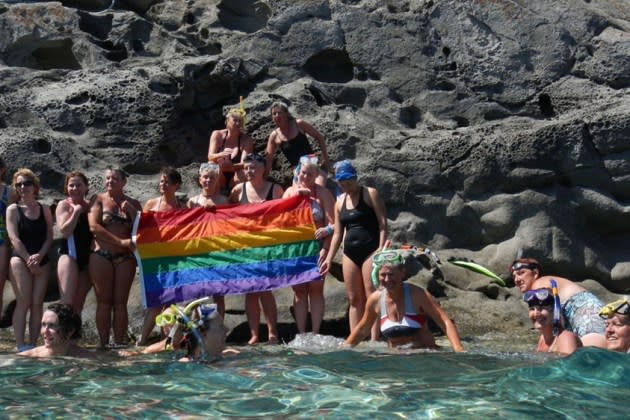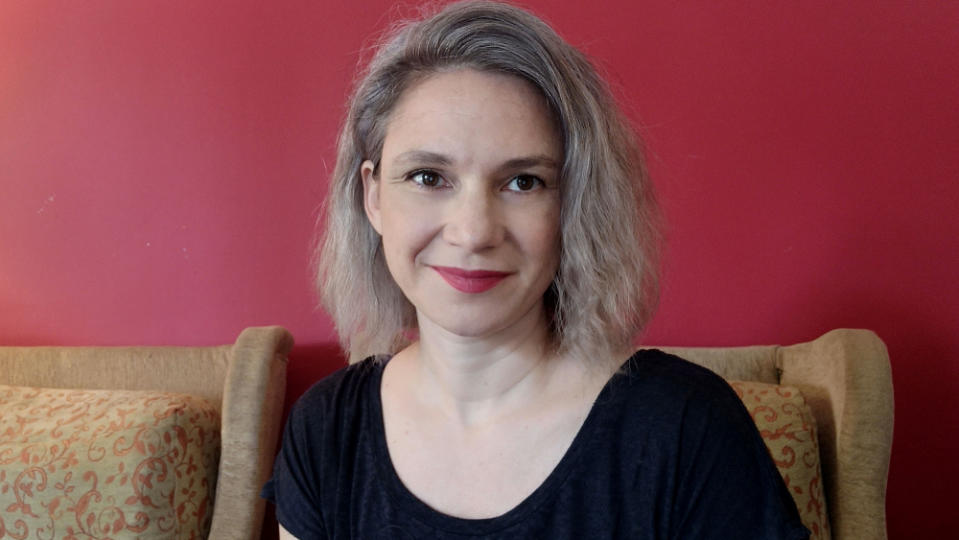Thessaloniki’s Industry Head on How Collaboration, Evolution Make Festival’s Agora Program Vital Stop for European Docmakers

As the Thessaloniki Documentary Festival embarks on its second quarter-century, with its 26th edition kicking off March 7, the event’s industry arm continues to look for ways to reinvent itself. “We are educating ourselves. We are asking the local and the regional industries and communities, ‘What do you need from us?’” says Angeliki Vergou, who heads the Agora industry program. “I believe in this open dialogue…with our colleagues about the challenges they face and we face [as we] try to figure it out together.”
A perennial highlight of the industry program is the Agora’s co-production and co-financing forum, which takes place March 11 and will present 12 projects in development by documentary filmmakers from Southeastern Europe, the Middle East and the Black Sea region. Another highlight, Agora Docs in Progress, held March 12, showcases 11 films nearing completion and ready to hit the festival circuit this year.
More from Variety
Recent titles to take part in the Agora pitching forum include Alisa Kovalenko’s 2023 Berlinale premiere “We Will Not Fade Away” and Tzeli Hadjidimitriou’s debut documentary feature “Lesvia” (pictured, top), which world premieres March 8 in Thessaloniki. Among the awards that will be handed out is a new €10,000 ($10,900) cash prize from the International Emerging Film Talents Assn. (IEFTA) for a project in development, making Thessaloniki just the second fest, after the Cannes Film Festival’s Cannes Docs, where IEFTA will be handing out such an award.
The nearly two-decade-old pitching forum unspools against a radically different backdrop for docmakers from Southeast Europe. “When we started [in 2005], co-production wasn’t so much of a thing. You were looking for co-producers in France or in Germany that had more financing support,” says Vergou. Since then, the Agora topper has seen a shift toward more collaborations between partners from the region, as well as encouraging signs of increased engagement between the Nordic countries and Southeast Europe.
“I think it’s more about the professionals involved,” Vergou says. “If they can see a vision that they can both support, they help each other out. This is why I believe industry events and trainings are very crucial, because they give people this opportunity to get to know each other, to see if there’s chemistry, to participate in something together. The human aspect of co-production is very important right now,” she continues. “It’s not only about the money. It’s about what we can create together.”

A new wrinkle in Thessaloniki this year is the Agora Workshop, a three-hour industry session that will offer a snapshot of “the landscape of what’s going on [in the documentary field], but also practical tools about private financing for documentaries in Europe and the U.S.,” according to Vergou. The inaugural edition will host international film consultant Arkaitz Basterra, a member of the investors committee at Moby Dick Film Capital, as well as former Sundance Institute director Caroline Von Kühn, now executive director at Greek non-profit Oxbelly and director at leading production outfit Faliro House.
Another change to this year’s program is a move away from the masterclass format, “reshaping it into more of a collective and inclusive collaboration,” says the Agora head. With the festival spotlighting queer cinema as part of its “Citizen Queer” sidebar — a programming decision that comes just weeks after Greece’s move to legalize same-sex marriage — Vergou says the Agora will frame the discourse from an industry perspective, examining “how diversity is implemented, and [whether] it is, in the end.”
The first edition of Talking Heads, “Citizen Queer: Moving Beyond Trends and Box-Ticking — On and Off the Screen,” will take place on March 13 and spotlight what needs to be done to create spaces where queer filmmakers can feel safe to tell their stories. Speakers include Fatih Abay, diversity and inclusion officer at the European Film Academy; writer-director Panayotis Evangelidis; Gugi Gumilang, program director at In-Docs and film programmer at Hot Docs; Rico Johnson-Sinclair, programmer, writer and skills and training director at Warner Bros. Discovery; director Iris Zachmanidi; and Marion Schmidt, of the Documentary Assn. of Europe, who will be moderating the discussion.
Another event will bring together a panel of female filmmakers including Laura Bari (“Primas”), Annika Mayer (“Home Sweet Home”), Nina Maria Paschalidou (“Femicidio”) and Elina Psykou (“Son of Sofia”) to discuss how they balance the demands of a documentary project while navigating personal trauma and “how they safeguard themselves and their characters — their integrity and their well-being,” says Vergou.
Last year, Thessaloniki introduced a collaboration with counterparts at Locarno, Tallinn Black Nights, Rotterdam and Karlovy Vary, called Launchpad, which aims to nurture budding film professionals. That followed on the heels of a think tank series launched with industry partners at Thessaloniki’s sister event in Nov. 2022 that was designed to reimagine and redefine the role of the film market in the European industry.
While Vergou insists that Thessaloniki and its European counterparts “need to stay independent and agile in order to adapt whenever the landscape changes,” she also stresses how collaboration is integral to the Greek festival’s DNA. “We do believe in sharing. We do believe that, of course, each market and each festival and each industry event has their own identity…[but] through collaboration, we can achieve more,” she says.
It is perhaps only fitting that such a conversation plays out in Greece’s second city, a town that feels intimate yet has historically held its arms out to embrace the world. “Because Thessaloniki is this cultural melting pot between the East and the West, we feel that it is the perfect sweet spot for everyone to meet and engage,” says Vergou. “You meet people effortlessly here. You cannot get lost in Thessaloniki.”
The Thessaloniki Documentary Festival takes place March 7 – 17.
Best of Variety
Sign up for Variety’s Newsletter. For the latest news, follow us on Facebook, Twitter, and Instagram.

 Yahoo News
Yahoo News 
